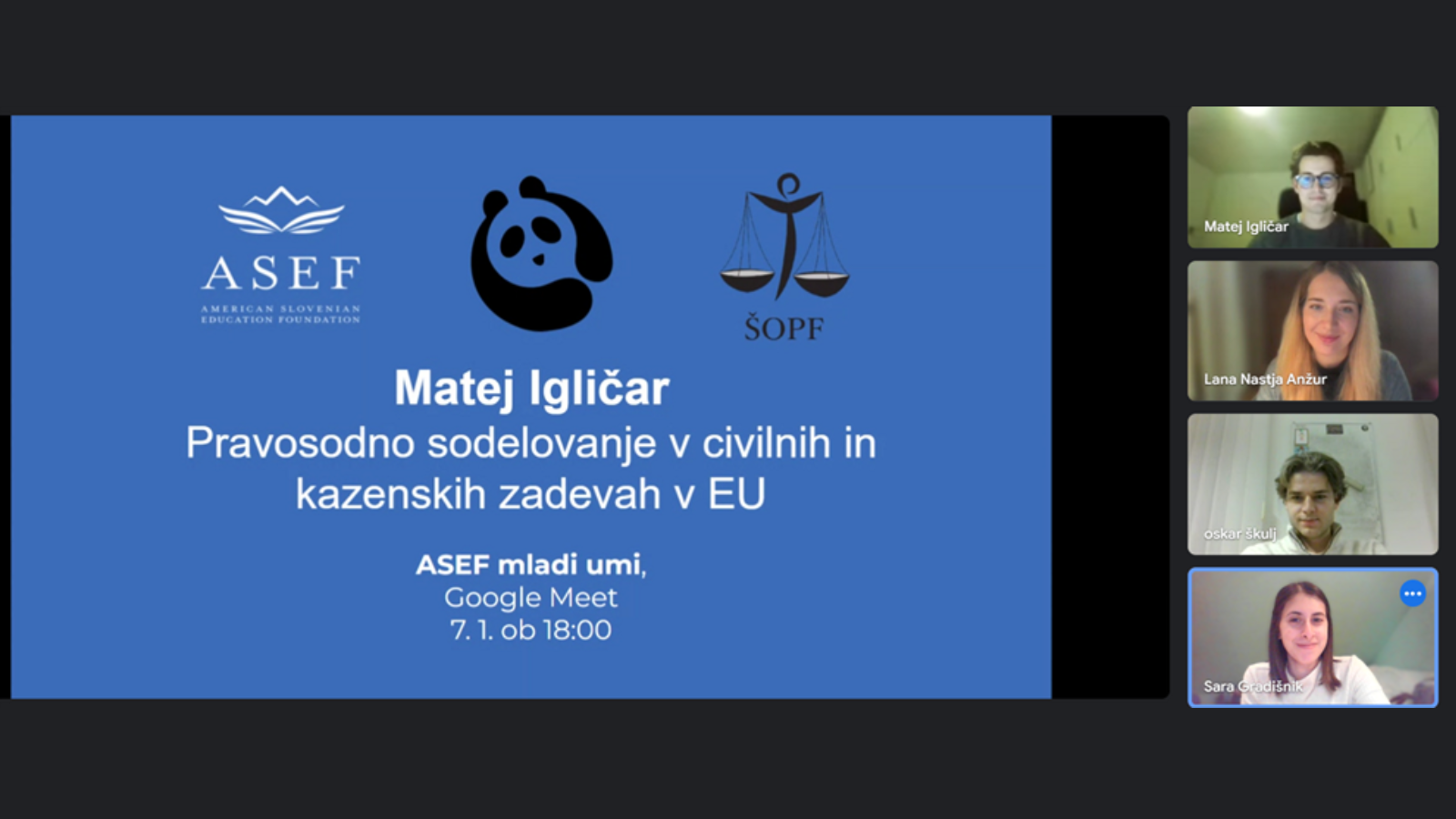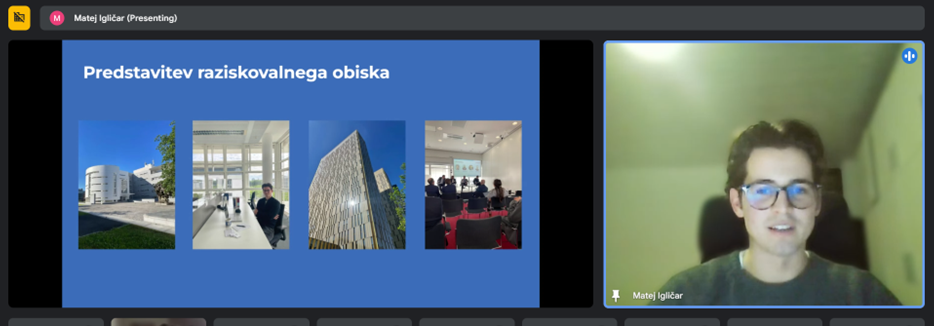
Matej Igličar: Judicial Cooperation in Civil and Criminal Matters in the EU
On Tuesday, January 7, ASEF, in collaboration with Pravna Panda and the Student Organization of the Faculty of Law, organized an online popular science lecture as part of the ASEF Young Minds lecture series. The first event of the new year was dedicated to judicial cooperation in the EU, with the guest speaker being Matej Igličar, a graduate of the Faculty of Law at the University of Ljubljana, a Master’s student at the University of Cambridge, and an ASEF 2024 Fellow.
The event was moderated by Lana Nastja Anžur, an ASEF 2024 Fellow, who introduced ASEF scholarship programs. She then invited Oskar Škulj, a representative of Pravna Panda, to share his thoughts. He emphasized the importance of the event for their organization and remarked:
“ASEF offers young students the opportunity to enhance their skills and seek new knowledge, which is truly commendable. This event is particularly special for the entire Pravna Panda community, as Matej, who has contributed greatly to our organization, is the speaker. I look forward to the lecture with great interest, fully aware of the hard work and dedication Matej has invested in the presentation he will share with us.”
The core of the evening featured Matej’s lecture, where he outlined judicial cooperation in civil and criminal matters as a key pillar of the European internal market. On the civil side, such cooperation removes barriers to the free movement of fundamental freedoms arising from cross-border enforcement of rights, while on the criminal side, it addresses the challenges of cross-border crime, which is partially facilitated by the free movement across borders. Despite the success of this cooperation, the field raises concerns regarding the protection of the rights of involved parties.
Matej’s lecture was structured into four main parts:
- Introduction: He outlined the historical beginnings of the EU, the development of the internal market, and the European integration project aimed at maintaining long-term peace among European nations.
- Key concepts and principles: He explained essential concepts such as the principles of mutual recognition and trust among member states, clarified the distinctions between civil and criminal law, and highlighted key legal acts, including the Brussels I and II Regulations, and the Rome I-III Regulations, as well as the Framework Decisions on the European Arrest Warrant and European Investigation Order.
- Current state: He provided a detailed analysis of legislation governing cross-border matters (Articles 81 and 82 of the TFEU) and emphasized the importance of effective cooperation between judicial systems of member states.
- Open questions and issues: He discussed challenges such as the complexity of the system, issues with mutual trust, and the balance between procedural efficiency and the protection of rights.
In concluding, Matej addressed the protection of rights in criminal proceedings and proposed two solutions derived from his research:
- The first is based on the principle of mutual trust and the verification of rights protection according to the national standards of member states.
- The second would represent a significant step for the EU:
“To regulate all cross-border criminal proceedings at the EU level and establish common standards among member states. This would eliminate the need for mutual trust since the same laws would be applied, and the standards of rights protection would be so high that their adequacy would never be questioned, ensuring maximum efficiency and the highest level of rights protection.”
However, Matej acknowledged that this second solution is highly unlikely in practice, explaining:
“Member states are unlikely to relinquish their sovereignty in this area. They will not even consider having common laws for all proceedings involving an international element instead of using their national laws.”
Matej concluded by sharing his research experience at the Luxembourg Institute of European Law (LCEL), where he focused on civil law and completed his research project on criminal law. He conducted his research under the mentorship of Prof. Dr. Verica Trstenjak, a renowned professor of European law and former Advocate General at the Court of Justice of the European Union, and received valuable guidance from LCEL Director Dr. Pierre-Henri Conac. Matej highlighted Luxembourg as a remarkable place to work, with its highly developed infrastructure and professional community. He was particularly impressed by the exceptionally well-stocked library, had the chance to meet Slovenians working at the Court of Justice of the European Union, and attended numerous events and conferences on European law.
Despite the online format, Matej managed to captivate the audience and clearly demonstrate how judicial proceedings in the EU are conducted when they involve cross-border elements. His exceptional public speaking skills, which have already earned him the Best Speaker award at the PAX Moot Court competition, serve as an inspiration for all young scholars.
ASEF would like to thank all participants for the first Young Minds evening this year.
The ASEF Young Minds project is supported by the Office of the Republic of Slovenia for Youth and the Government Office for Slovenians Abroad.


